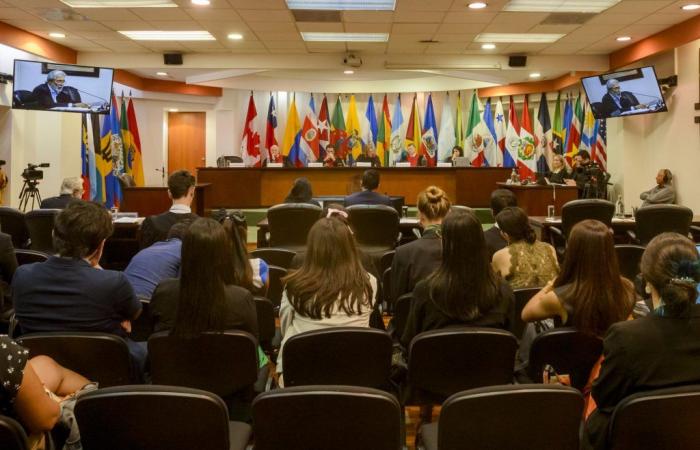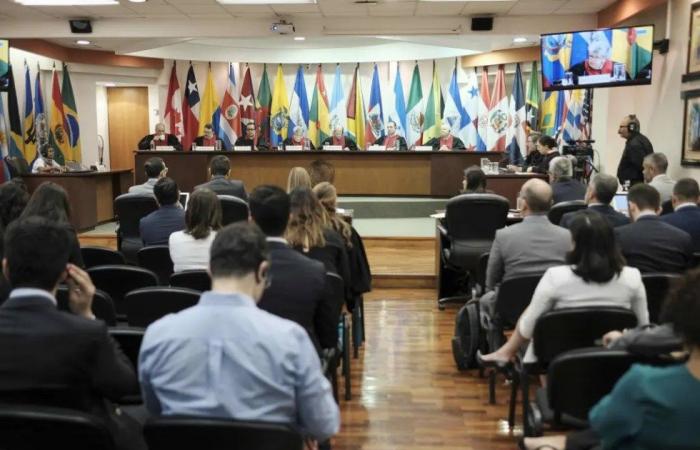San José (EFE).- The Inter-American Court of Human Rights (Inter-American Court) will hold a period of sessions from June 17 to July 5 in which it will hold hearings for lawsuits against Nicaragua and Brazil, and will also analyze a request for measures provisional measures against a Peruvian bill.
The Inter-American Court reported this Saturday that on June 17 it will begin its sessions with a hearing on provisional measures requested by human rights defenders and victims of Peru, against a bill related to crimes against humanity and war crimes.
The Inter-American Court summoned the State of Peru, the Inter-American Commission on Human Rights (IACHR) and the representatives of the victims of the Barrios Altos and La Cantuta cases to the virtual public hearing to make their positions known.
CourtIDH called Peru
This matter refers to a bill that would not allow anyone to be prosecuted for crimes against humanity or war crimes that occurred before 2002 and, therefore, excludes the period of internal conflict, between 1980 and 2000, which left more of 69,000 victims in the country.
Last Thursday, the Inter-American Court issued a resolution asking the Peruvian State to “immediately suspend” the process of the initiative, in order to have all the necessary elements to rule on the matter.
The Congress of Peru rejected on Friday what it considered “interference” by the Inter-American Court and declared itself independent of that court.
Cases of Brazil and Nicaragua
During this period of sessions, the Inter-American Court will hold two hearings for claims against Nicaragua, related to the lack of investigation of an apparent feminicide; and another against Brazil for apparent illegal detentions and torture of two men, one of whom was extrajudicially executed.
The Nicaragua case, whose hearing will be on July 3, refers to the lack of due diligence in the investigation of the facts related to the death of Dina Alexandra Carrión, as well as in ensuring the relationship and bond of her son with his family. maternal.
The lawsuit against the State argues that there were irregularities and stereotypes in the investigation, it did not sufficiently investigate the possible femicide or patricide, despite the indications that the woman’s death could have been motivated by gender reasons.
Brazil, investigated for torture and arbitrary detentions
For its part, the case of Brazil refers to the alleged international responsibility of the State for the alleged lack of investigation and punishment of those responsible for the alleged arbitrary detentions and torture committed against Eduardo Collen Leite and Denise Peres Crispim. The case also deals with the alleged extrajudicial execution of Collen Leite.
According to the lawsuit, Denise Peres Crispim, who was six months pregnant at the time of the events, was detained on July 23, 1970, and subjected to interrogation and torture for a week by military agents.
Eduardo Collen Leite was arrested on August 21, 1970 and taken to a clandestine torture center. According to the National Truth Commission, Collen Leite ended up murdered by state agents and had the “most terrible death of the entire Brazilian dictatorship.”
During its period of sessions, the Inter-American Court will carry out other tasks such as private hearings for supervision and interpretation of sentences, as well as deliberations to issue sentences.







